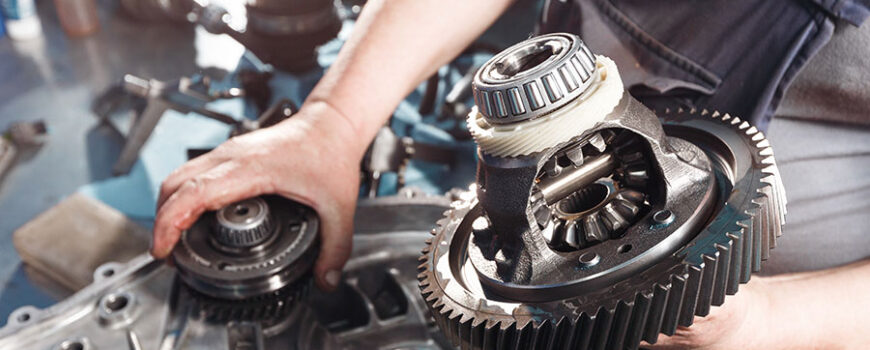Owning a Porsche is about more than peak speed. It’s about enjoying consistent, smooth power on every journey. The guidance below shows you how to protect the performance of your Porsche engine, detect issues early, and plan service like a professional.
Why Your Porsche Engine Needs Specialised Care
Porsche engines are finely balanced machines. Each relies on tight tolerances, lightweight materials, and advanced electronics that demand tailored, precise servicing rather than “one-size-fits-all” routines.
Essential Engine Design Features
Porsche engines stand out because of 3 key engineering choices:
- Flat-Engine Layout: Most Porsche sports cars use a horizontally opposed (flat) engine, where cylinders lie in 2 banks facing each other. The low, wide format drops the centre of gravity, enhancing cornering and high-speed stability.
- Lightweight Materials: Titanium con-rods, magnesium valve covers, and thin-wall castings reduce weight, allowing the engine rev quicker and improve efficiency.
- High Specific Output: Turbocharging, direct injection, and precise boost control squeeze significant power from small displacements.
Critical Performance Requirements
To keep those features working as designed, engines rely on:
- Cooling Systems: 3 radiators and an electric water pump hold coolant near 90 °C; any clog or pump lag causes cylinder-liner temps to spike.
- Lubrication System: A separate oil tank and scavenge pumps keep bearings and turbo vanes fed during high-G cornering; low pressure risks early wear.
- Power and Combustion: Direct injectors spray fuel at up to 250 bar, while knock sensors fine-tune timing; dirty injectors or poor-quality fuel disrupt combustion and reduce power.
How to Optimise Daily Driving Excellence
Every part fitted to a Mercedes should pass a clear set of quality checks. These tests prove the component can handle daily stress, resist harsh weather, and stay safe for passengers.
Smart Techniques for Peak Power
Simple routines to maintain your Porsche in peak condition without extra workshop visits:
- Warm Up Gently: Keep revs under 3,000 rpm for the first 5 minutes to allow oil to fully circulate through the turbo system.
- Give One Daily Full-Throttle Burst: A short burst helps clear carbon from the valves and keeps turbo vanes moving freely.
- Stay Above 2,000 RPM on Hills: Low revs under load strain rods and bearings; a steady mid-range keeps stress levels down.
- Choose RON 97 or Higher: Premium fuel enables optimal engine timing for quicker throttle response.
Managing Performance in Malaysian Weather
Heat, humidity, and stop-start traffic demand extra attention:
- Clean Intercooler Fins Every 3 Months: Bugs and debris block airflow and raise intake temperatures.
- Test Auxiliary Fans Before Monsoon Season: Flooded roads can short weak fan motors and trigger limp mode.
- Limit Extended Idling with A/C On: Heat builds under the deck lid; drive slowly or shut off the engine to cool down.
- Check Belt Tensioner Yearly: Heavy A/C use weakens spring tension, causing belt slip and reduced alternator output.
Which Professional Maintenance Practices Matter Most
Some jobs demand specialist tools and training. DIY attempts can lead to costly damage, voided warranties and reduced performance.
Key Components That Need Expert Care
These systems hide tight tolerances and special tools, so leave them to a specially trained technician.
- Engine and Related Systems: High-pressure fuel pumps must be tested at 200 bar, timing chains need factory locking jigs, and variable-geometry turbos require PIWIS software for vane calibration.
- Braking System: Porsche Ceramic Composite Brakes (PCCB) crack if rotor bolts are not torqued in a strict cross-pattern. Even steel-disc cars need a 2-stage bleed and DOT 4 fluid every 2 years to keep the pedal feel firm.
- Suspension and Alignment: 4-wheel alignment calls for camber settings measured in minutes, not degrees, and ride-height changes demand a post-adjustment bushing check. Laser rigs and Porsche specs prevent uneven tyre wear and steering pull.
Optimal Service Scheduling Guide
Exact service timing varies by model and driving style, but use the guide below as a reference point:
Service Type | Interval | Main Components Covered |
Minor Service | Every 16,000 km / annually | Engine oil and filter, safety checks, tyre inspection/pressure, diagnostic scan |
Intermediate | Every 32,000-48,000 km | Cabin air filter, spark plugs, multi-point inspection, brake fluid ( every 2 years) |
Major Service | 64,000-96,000 km or every 4–6 years | All of the above plus transmission fluid (PDK/manual), coolant, drive belts, full checks |
When to Monitor Porsche Engine Performance
Regular checks help detect small issues before they become expensive repairs. Use the signs below to guide workshop visits:
Signs of Optimal Operation
A healthy Porsche engine shows steady numbers and operates smoothly:
- Responsive Power Delivery: Throttle response should be quick and consistent, with no flat spots, hesitation or turbo lag.
- Stable Idle and Running: At rest, the engine should purr smoothly without shakes, dips, or rattles.
- No Warning Lights: A clear dashboard means control modules aren’t flagging performance faults.
Professional Assessment Guidelines
When performance drops or warning lights appear, visit a workshop with specialist diagnostic tools.
- Run a Full OBD Scan Every Quarterly: Misfire, fuel-trim, or knock codes show up here well before the dashboard alerts.
- Schedule an Annual Bore-Scope Inspection: A slim camera can detect early cylinder scoring, avoiding unnecessary engine tear-down.
- Pressure-Test the Cooling System Before Trips: Helps locate small leaks that only appear under high temperature and pressure.
Master Your Porsche Engine with Sun Eng Hup's Pro Expertise
Expert diagnostics and seasoned technicians—that’s the Sun Eng Hup standard. From rapid health scans to precision recalibration, our team uses factory-grade tools to deliver tailored Porsche service.
Ready for smooth, worry-free power? Call us to book a full-car diagnostic and protect peak performance for your Porsche engine.

